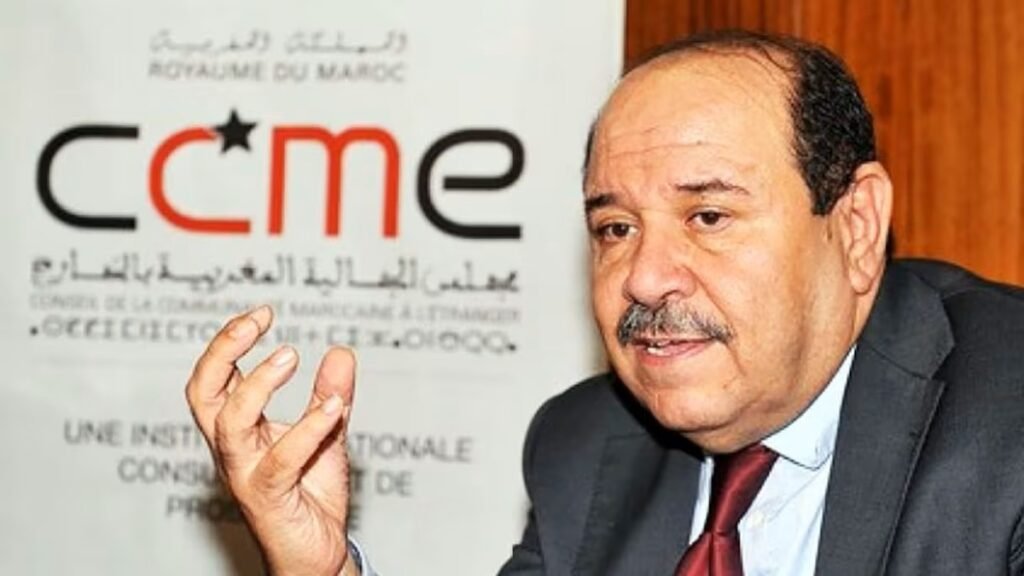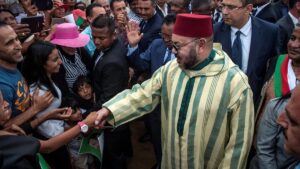Le Monde's blunder against King Mohammed VI
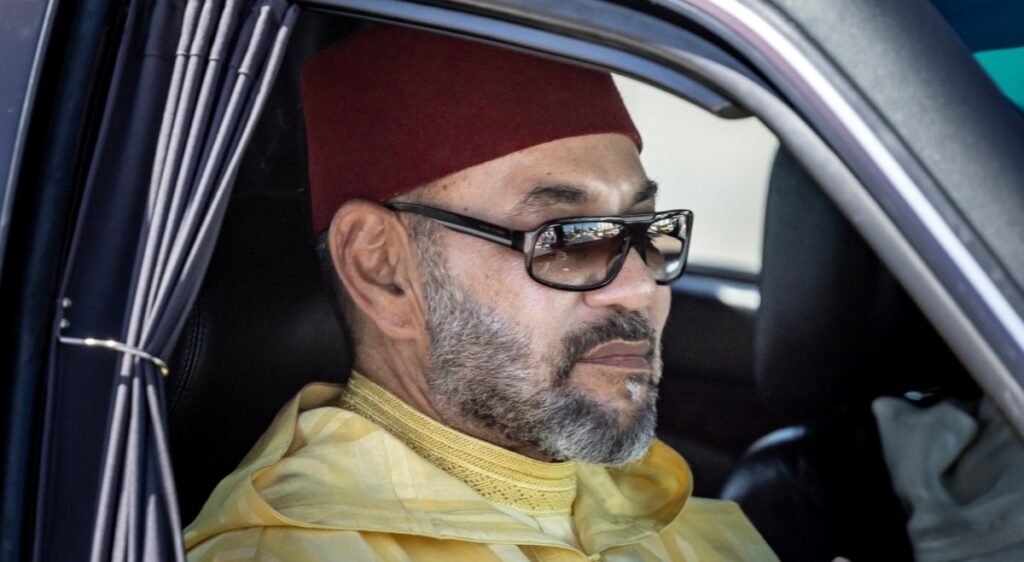
Dr. Abdullah Boussouf (Historian, Secretary General of the Council of the Moroccan Community Abroad)
On Monday, August 25, the French newspaper Le Monde published a lengthy article, the first part of a six-part series devoted to King Mohammed VI, titled "The Atmosphere of the End of Mohammed VI's Reign." The newspaper made the king's illness the backbone of the article, adding some information previously published in the Moroccan press about his relationship with some of his subjects.
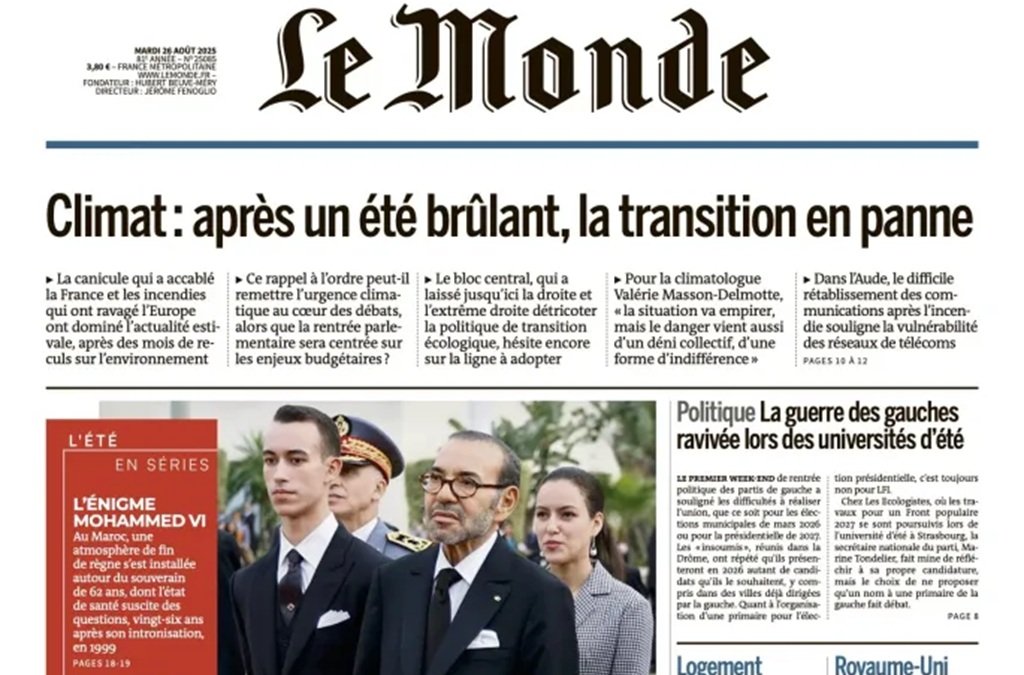
However, the article offers little new information, as most of its contents are merely a translation or re-publication of previous writings by Spanish journalist Ignacio Sombrero, known for his pathological hostility to all things Moroccan. Le Monde asserts that the king's illness and frequent travels have caused him to withdraw from power, an inaccurate conclusion.
First, it's worth emphasizing that King Mohammed VI's illness has never been a taboo topic in Morocco. Each time the king suffered a health problem, his personal physician or the royal court would issue an official statement informing the public of his condition. Indeed, the king himself did not hesitate to make spontaneous appearances that demonstrated his humanity. He appeared on public television welcoming athletes, leaning on a cane, and official photos of him undergoing heart surgery in a Parisian hospital, surrounded by his family, were published. He also appeared alongside French President Emmanuel Macron, leaning on a cane, and participated in religious ceremonies sitting in a chair, keen to fulfill his religious duties despite his health condition.
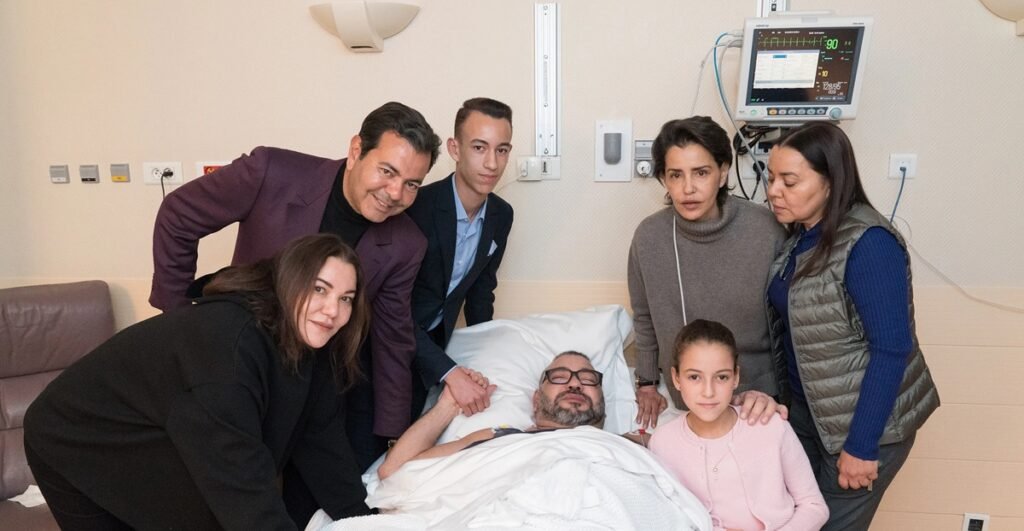
The French newspaper's conclusions are based on projections of what France itself experienced with its own presidents, from Charles de Gaulle to François Mitterrand and François Hollande. These presidents hid their illnesses from the public, and Le Monde would then simply publish reassuring statements issued by the Élysée Palace. The example of President François Mitterrand stands out, as he was diagnosed with cancer during his first term (1981) and continued to rule, plagued by the illness throughout his two terms in office, spanning seventy years. Despite the rumors, Le Monde continued to defend the president's health. When journalist Jean-Pierre El Kabbash asked him, "Are you suffering from an illness?" he bluntly replied, "That's none of your business," ending the interview. Nevertheless, his illness did not prevent him from carrying out his duties until the end of his second term.
In the Moroccan case, illness or travel did not prevent King Mohammed VI from fully exercising his constitutional duties, along with the government, national institutions, and his advisors. He remained present at all major national events requiring his presence, such as ministerial councils, the opening of parliament, and religious and national occasions. He was also present at global events such as the COP22 Climate Conference in Marrakech in 2016, where he received heads of state and led the summit's proceedings.
The King did not fail to follow up on the major crises that shook Morocco, such as the Rayan case (2022), the COVID-19 pandemic, and the Al Hoceima earthquake (2023). He also chaired important meetings related to strategic issues such as water, energy, agriculture, and development. He also received world leaders and prominent figures, such as French President Emmanuel Macron, Mauritanian President Mohamed Ould Cheikh El Ghazouani, and the foreign ministers of the Sahel countries.
History is replete with world leaders whose illnesses did not prevent them from carrying out their duties and achieving accomplishments. US President Franklin Roosevelt led World War II from a wheelchair, and British Prime Minister Winston Churchill, despite his advanced age and failing health, led Britain through the most difficult periods of the war.
Moroccan sultans throughout history have remained faithful to their pledge of allegiance, even in times of illness. Suffice it to recall the Battle of Wadi al-Makhazin in 1578, when Sultan Abd al-Malik al-Mu'tasim al-Sa'di died of an illness during the fighting. Yet, there was no failure in the leadership of the battle, as his brother Ahmad al-Mansur al-Dhahabi immediately assumed command, achieving a resounding victory over the Christian coalition led by the young Portuguese king, Sebastian, who was killed in the battle.
Therefore, Le Monde can rest assured that Morocco's future is in safe hands. The Moroccan people, across all sectors, stand behind their king, and this is the true guarantee of continued victories, stability, development, and loyalty to the historic allegiance pact between the king and the people.
